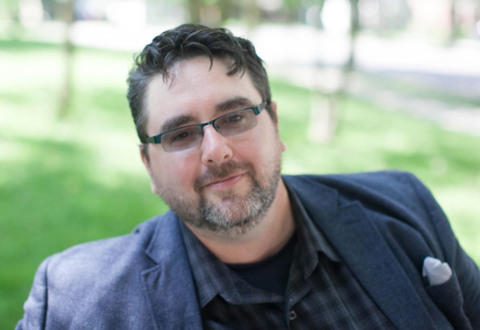How do we ensure access to information and protect the speech of underrepresented groups?
Many Americans today have come to expect access to information where and wherever it is wanted. With the internet at our fingertips and a world wide web to explore, it’s easier than ever to be up to speed on the latest news. But this is only true for the people who have quality access.
Associate Professor Christopher Terry’s exploration into media accessibility began in an environment steeped in such a mindset. As a longtime broadcast professional, he witnessed the efforts at ownership consolidation unfold. Observing the negative impacts on diversity and localism, he determined that he wanted “to have a direct impact on the policy side of things.” This resolve has since led him to pursue a variety of policy research.
Finding Equitable Accessibility
A major focus of Terry’s work has been examining issues surrounding FCC regulations, including media ownership, internet regulation and political advertising. He applies a mixture of policy evaluation and legal history methodology to examine the impact of regulatory policy on the environment for diverse political speech, including the speech of traditionally marginalized groups.
Addressing the intersections between regulatory policy and public communication from a range of media regulation perspectives including ownership, political advertising, and content regulation for broadcast stations and the internet, Terry is proud that the research he does has been used by the FCC to support minority ownership initiatives. He is especially excited about the fact that some portions of this work were completed with the help of Dean’s First-Year Research & Creative Scholars (DFRACS) at the University of Minnesota. These Honors program students assisted in some portions of data collection and analysis in 2021, making the information presented to the FCC a year-long work in progress.
Monitoring Policial Advertising
While Terry is interested in making the same facts available to all, he is equally dedicated to discovering who is sharing what information.
Last year, Terry and colleague Fernando Severino were awarded the 2022 Broadcasting Education Association’s Outstanding JRAM Article of the Year for their article titled "Spanish-Language Radio and Issue Advertising: Targeting Latinos during the 2018 Elections." True to the subject, the duo investigated the sources of political advertisements on Spanish-language radio during the series of local and federal elections in 2018.
What they discovered was that large GOP outreach organizations funded and created the political advertising content heard on Spanish-speaking channels with significant regular audiences. Their findings surprised some of the leading researchers in government transparency.
As part of their continuing dedication to keeping this information alive, Terry and Severino are currently working on a follow-up paper similarly analyzing the data from the 2022 election cycle. The pair is curious to see how the content sources have changed, or remained altogether the same, over the years.
Heading Out of Network
Looking to the future, Terry’s passion for the study of advertising and information accessibility is now taking him somewhere few media scholars are interested in going: almost entirely off the grid.
As a Seed Grant recipient, Terry has made it his mission to delve into the dwindling portions of America almost entirely out of the reach of broadband internet. To do so, Terry will be spending a significant amount of time traveling from the Twin Cities campus to Fillmore County, Minn.
This rural area of the state, a mere two-hour drive southeast from his office in Murphy Hall, has less than 75 percent broadband penetration. This low level of internet access can have impacts on more than a dropped call or a glitchy virtual meeting; it can stagnate an entire county’s economy. Terry is determined to learn more about the choices that need to be made in order to succeed in an area with little internet access, as well as what changes stronger connectivity might have on the bottom lines of local farmers.
Meanwhile, Terry is excited to be teaching several courses on campus this semester. The majority of his course content centers on his professional forte: media policy and regulation. “The thing about teaching law and policy,” he said, “is that it’s always changing.”
As the media landscape continues to change on a dime with each Supreme Court ruling and FCC decision, Terry revels in the challenge of teaching his students the fundamentals of media regulation, while simultaneously keeping them up to date on the practical implications of the changing legal environment. He hopes that, as more people become aware of the content around them, they too will join in his efforts to make information and connectivity accessible to all.
By Regan Carter
